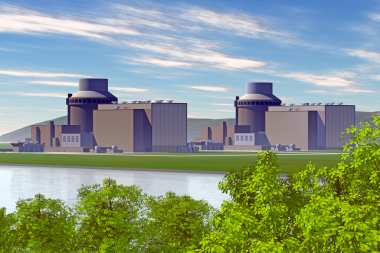Construction work delayed at Levy as costs rise
07 May 2010
Progress Energy has announced that it has postponed major construction activities at the proposed Levy nuclear power plant in Florida until it has received a licence for the plant. At the same time, the estimated cost for the project has increased by up to $5 billion.
 |
| Progress slows at the proposed Levy plant (Image: Progress Energy) |
The company said that it has delayed work on the Levy project for several reasons, including: the need to reduce capital spending to avoid short term rate increases; a recent downgrading to Progress Energy Florida's credit ratings; a delay in the licensing timeline; the current economic climate; and continued uncertainty about federal and state energy policies, including carbon regulation.
Progress says that, according to the current schedule, it expects the US Nuclear Regulatory Commission (NRC) to issue the combined construction and operating licence (COL) for Levy in late 2012. The company said that at that time it will "update its assessment of the project and schedule to ensure that it continues to be in the best interests of customers and shareholders."
Examples of work being deferred until after the NRC issues the COL include design of the plant property and transmission lines; certain land acquisition for the transmission lines; construction of the barge slip and nuclear facility training facility; and clearing and other site preparation.
Levy units 1 and 2 - both Westinghouse AP1000 reactor units - were originally expected to begin operating in 2016 and 2017, respectively. However, in May 2009, Progress announced a schedule change for the project after regulators ruled that no excavation may take place ahead of full permission to build. Commercial operation of the two 1105 MWe reactors were pushed back by "a minimum of 20 months."
The company has filed nuclear cost for 2010 and projected costs for 2011 with the Florida Public Service Commission (PSC). These include costs for the proposed Levy plant and an uprate project at unit 3 of its existing Crystal River plant. For 2011, the company is seeking to recover $164 million in nuclear costs. If the PSC approves Progress' 2011 nuclear cost estimates as filed, the company estimates the average residential customer would pay $5.53 per month on a 1000 kilowatt-hour bill ($4.99 for Levy and 54 cents for Crystal River) beginning with January 2011 bills. That is 21% lower than the $6.99 per month customers currently pay ($6.78 for Levy and 21 cents for Crystal River).
Meanwhile, Progress said that its current estimate for the cost of the proposed Levy plant is between $17.2 billion and $22.5 billion. This cost includes land, transmission lines, fuel and financing costs. The company had previously put the estimated cost as up to $17.2 billion.
Progress said that, once it receives the COL for Levy, "it will further refine the project timeline and budget, and it will make every effort to keep the price in the lower end of the estimated range."
Vincent Dolan, president and CEO of Progress Energy Florida, said: "Slowing work on the Levy project until we receive the licence is the right decision for our customers and our company." He added, "In addition to lowering near-term price impacts on customers, the change in the construction timeline will allow for greater clarity on federal and state energy policies and will allow the economy more time to recover before the company completes major construction wok on the project."
Dolan noted, "The timeline extension also will allow Progress Energy to benefit from the experiences of other companies that are beginning to construct new nuclear power plants in the next few years. This will give us greater certainty regarding the price and the final construction schedule."
"Building advanced nuclear plants will become increasingly important to Florida and the nation as we must reduce greenhouse gas emissions, strengthen energy security and support a growing population and economy," said Bill Johnson, chairman, president and CEO of Progress Energy. "Our company will focus its near-term efforts on modernizing the power system and pursuing other elements of a balanced portfolio while looking to new nuclear capacity as a critical part of the long-term mix."
Researched and written
by World Nuclear News